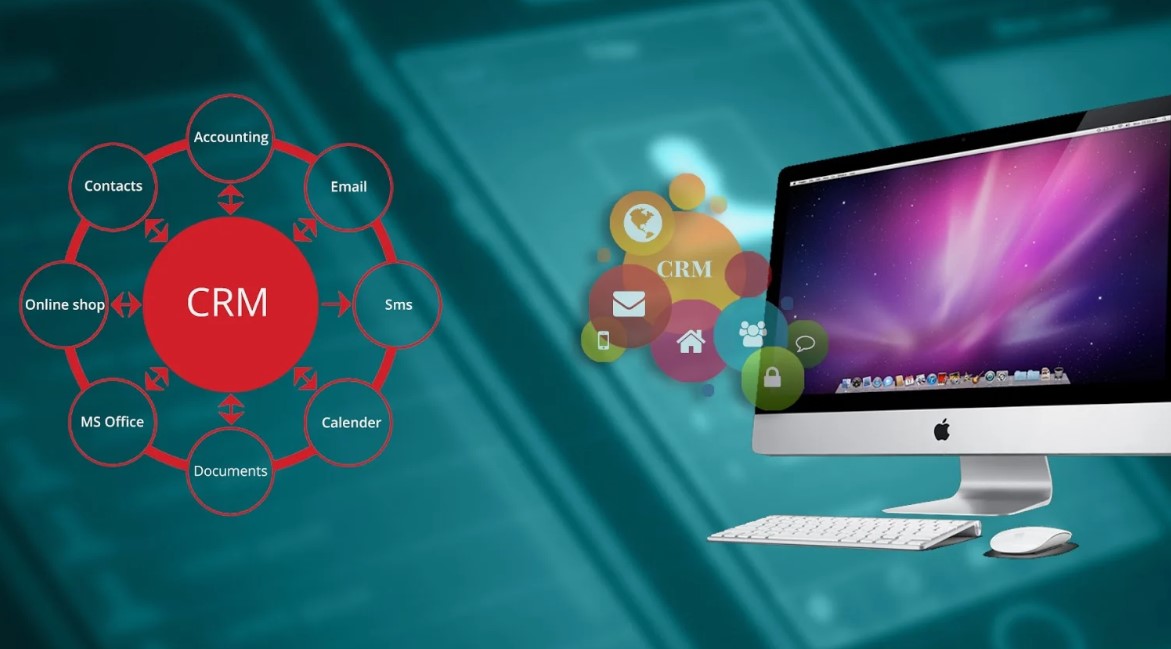In the ever-evolving landscape of modern business, where competition is fierce and customer expectations are higher than ever, the importance of a robust customer relationship strategy cannot be overstated. For businesses operating in highly competitive markets like the Gulf region, where products and services often appear indistinguishable from one another, a strategic approach to managing customer relationships—such as the one offered by Spearhead Gulf LLC—can be the difference between thriving and merely surviving.
Strategic Customer Relationship Management (CRM) is not just a business tactic; it’s a comprehensive strategy that helps organizations establish, maintain, and grow their relationships with customers. This strategy involves meticulous planning, organizing, monitoring, and analyzing all interactions with current and potential customers, ensuring that every touchpoint adds value to the customer experience and, ultimately, to the business itself.
The Role of Customer Relationship Strategy in the Sales Process
A well-designed customer relationship strategy plays a crucial role in the sales process by enabling businesses to optimize their resources and efforts. By focusing on customers who offer the greatest potential rewards, businesses can significantly reduce costs while maximizing their return on investment (ROI). The essence of strategic CRM lies in its ability to provide a deep understanding of the customer base, allowing businesses to tailor their sales and marketing efforts to meet the specific needs of different customer segments.
Core Principles of Strategic Customer Relationship Management
At the heart of strategic CRM are several core principles that guide how businesses interact with their customers:
- Customer Selection: The first step in any successful CRM strategy is understanding who your customers are. This involves segmenting the market into distinct niches based on customer needs and preferences. By identifying target segments where the company can offer a unique value proposition, businesses can allocate resources more effectively and focus their efforts on the most profitable customer groups.
- Attraction: Once target segments have been identified, the next step is to attract new customers. This involves communicating the company’s value proposition in a way that resonates with the specific needs and desires of the target audience. Customized mass marketing, tailored to the preferences of different customer segments, plays a critical role in this stage.
- Retention: Acquiring new customers is important, but retaining them is often even more critical. Retention strategies focus on providing exceptional service, creating exclusive partnerships, and building long-lasting relationships that encourage customers to remain loyal to the brand. Lifelong customers are a valuable asset, as they not only continue to purchase but also become advocates for the brand.
- Growth: The final principle of strategic CRM involves growing the value of each customer relationship. This can be achieved through cross-selling, offering integrated solutions, forming strategic partnerships, and providing customer training. By continuously adding value, businesses can increase customer satisfaction and loyalty, leading to greater profitability over time.

Key Aspects of Strategic Customer Relationship Management
Strategic CRM is a multifaceted approach that encompasses several key aspects, each aimed at enhancing the customer experience and driving business growth:
- Customer Identification: The foundation of any CRM strategy is identifying and targeting individuals or businesses that are most likely to become profitable customers. This involves analyzing and segmenting the customer base to ensure that marketing efforts are directed toward the most promising opportunities.
- Customer Acquisition: Attracting new customers requires a focused approach to marketing. This often involves identifying potential customer segments and investing in targeted marketing campaigns that speak directly to the needs of these segments. Direct marketing techniques, such as personalized email campaigns and targeted online advertising, can be particularly effective in this regard.
- Customer Retention: Once customers have been acquired, the focus shifts to retention. This involves building strong, lasting relationships by understanding customers’ needs and preferences in depth. Analyzing customer interaction data can help shorten the sales cycle and increase customer loyalty, leading to higher lifetime value and more consistent revenue streams.
- Customer Development: The final aspect of strategic CRM is customer development, which focuses on increasing the value of each customer relationship over time. This can involve increasing the frequency and quality of interactions, enhancing the personal profitability of each customer, and analyzing metrics such as customer lifetime value, average sales growth, and product basket analysis. By continuously improving the customer experience, businesses can drive long-term growth and profitability.
Industry Applications of Strategic CRM
Strategic CRM is not limited to a single industry; it is a versatile approach that can be applied across various sectors to improve customer satisfaction, loyalty, and profitability. Here are some examples of how strategic CRM can be implemented in different industries:
- Pharmacy Chains: In the pharmaceutical industry, strategic CRM can involve analyzing historical sales data to identify trends in customer demand. For example, a pharmacy chain might notice that demand for vitamins and cold medicines spikes during the autumn and winter months. By anticipating this demand and stocking up on these products ahead of time, the chain can increase sales and improve customer satisfaction.
- Real Estate Agencies: In the real estate sector, strategic CRM can help agents manage their relationships with clients more effectively. For instance, a CRM system might send automated reminders to realtors about upcoming deadlines, ensuring that they never miss an important call, meeting, or opportunity to close a deal.
- Online Stores: E-commerce platforms can leverage strategic CRM to collect and analyze detailed information about their customers, such as their purchase history, product preferences, and feedback. This data can then be used to create personalized marketing campaigns that increase the likelihood of repeat purchases and enhance customer loyalty.
- Small and Medium Enterprises (SMEs): For SMEs, strategic CRM can be a powerful tool for building individualized customer-oriented models. By treating each customer according to their specific needs and potential value to the business, SMEs can ensure that their marketing efforts are both efficient and effective.
- Large Corporations: In large organizations, strategic CRM can help improve the customer experience at scale. This might involve implementing advanced CRM systems to manage large volumes of customer data, automate marketing processes, and ensure consistent service quality across multiple touchpoints.
- Marketing Departments: In the marketing field, strategic CRM can guide the development of relationship marketing strategies. For example, marketing professor L. Berry suggests several potential strategies for customer-oriented service, including enhancing basic services and adding additional benefits to create a more compelling value proposition.

The Importance of CRM Training
Implementing a successful strategic CRM program requires more than just the right tools; it also requires a skilled and knowledgeable workforce. This is where CRM training comes into play. Comprehensive training programs can equip employees with the skills and knowledge they need to build and maintain strong, mutually beneficial relationships with customers. CRM training courses typically cover a wide range of topics, including:
- Strategies for Improving Customer Communication: Effective communication is at the heart of any successful CRM strategy. Training programs teach employees how to communicate with customers in a way that builds trust, meets their needs, and enhances their overall experience.
- Methods for Satisfying Customer Needs: Understanding and meeting customer needs is critical to building long-term relationships. CRM training helps employees develop the skills necessary to identify customer needs and provide solutions that exceed their expectations.
- Techniques for Personalizing Marketing Efforts: Personalized marketing is a key component of strategic CRM. Training programs teach employees how to use customer data to create targeted marketing campaigns that resonate with individual customers.
- Approaches to Integrating CRM Systems: Implementing a CRM system is often a complex process that requires careful planning and execution. CRM training programs provide employees with the knowledge and skills they need to successfully integrate CRM systems into the broader business strategy.
Strategic CRM in the Gulf Region
In regions like Dubai and Abu Dhabi, where the market is highly competitive and products and services are often similar, strategic CRM is especially important. Companies operating in these markets must prioritize customer satisfaction and loyalty if they hope to stand out from the competition.
Spearhead Gulf LLC, a leading provider of business training in the Gulf region, offers specialized courses in Strategic Customer Relationship Management. These courses are designed to meet the unique needs of businesses operating in this challenging environment, providing them with the tools and knowledge they need to succeed.
The 2-day online training program offered by Spearhead Gulf LLC covers all aspects of strategic CRM, from customer selection and acquisition to retention and development. Priced at AED 2,900.00, the course is an invaluable investment for any business looking to improve its customer relationships and drive long-term growth.
Conclusion: The Path to Sustainable Success
In conclusion, strategic customer relationship management is not just a business strategy; it’s a fundamental approach to creating value through strong, lasting relationships with customers. By focusing on customer selection, attraction, retention, and growth, businesses can optimize their resources, improve customer satisfaction, and drive long-term profitability.
Whether you are a small business owner, a manager in a large corporation, or a marketing professional, understanding and implementing strategic CRM can significantly enhance your ability to compete in today’s challenging markets. Investing in CRM training, such as the courses offered by Spearhead Gulf LLC, can further refine your skills and help you develop a customer-first strategy that delivers tangible results.

Surfer, dreamer, record lover, Vignelli fan and growthhacker. Making at the sweet spot between simplicity and mathematics to create strong, lasting and remarkable design. German award-winning designer raised in Austria & currently living in New York City.






